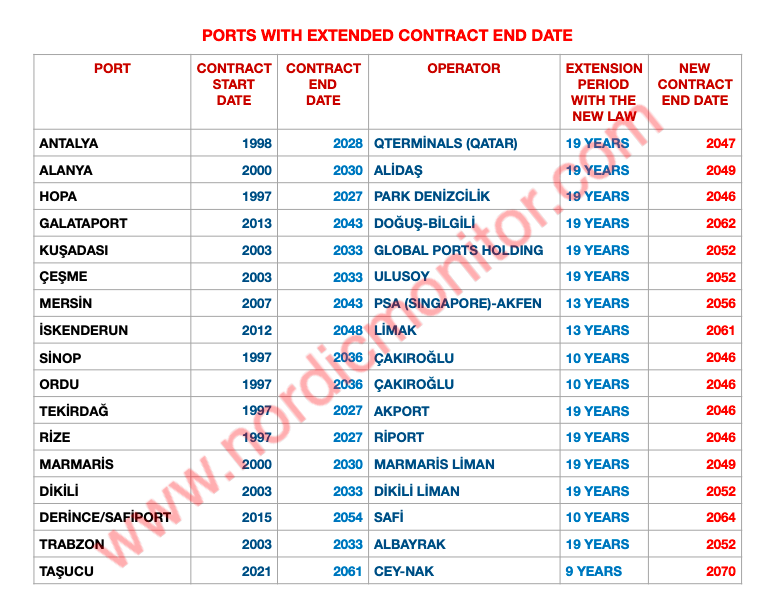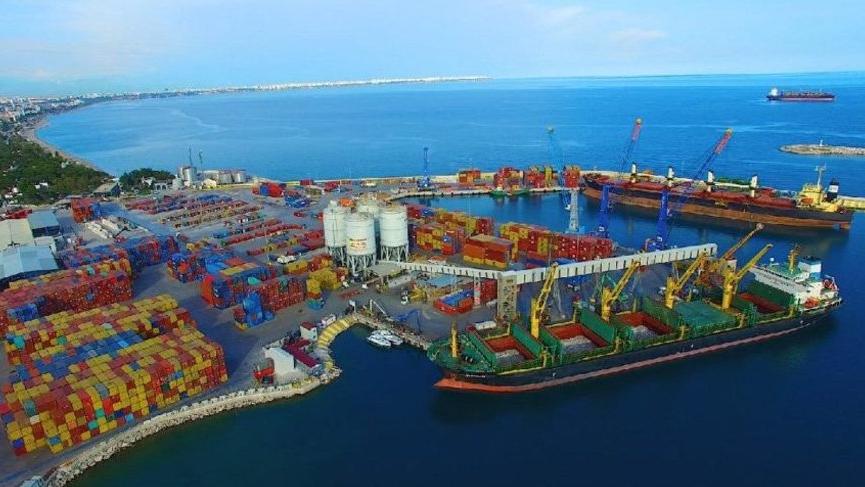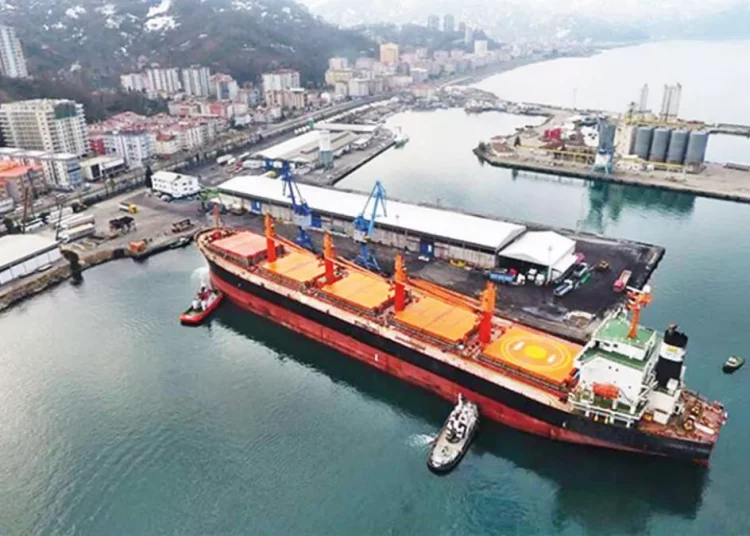Levent Kenez/Stockholm
In a scandalous move, a bill allowing the extension of lease agreements for 18 seaports operated by private companies without new tenders was passed in the Turkish parliament last week. As a result, favored companies will have an additional period of up to 19 years to operate the ports. Interestingly, a previous law proposing the same conditions was annulled by the Constitutional Court in August 2022 on the grounds of insufficient competition and a loss to the public.
Under Turkish law, the ownership of a seaport cannot be transferred to a private company. A private entity can only obtain the right to operate the port through a tender for a maximum of 49 years.
The government claims that the new law will prevent the disruption of seaport services and provide continuity in maritime transportation for 13 seaports belonging to Turkish Maritime Enterprises Corporation and five seaports owned by Turkish State Railways (TCDD). In order for companies to benefit from the extension, they must not be indebted to the state and must unconditionally withdraw any lawsuits filed against the public authorities.
It is noteworthy that the private companies that will benefit from the new law are owned by businessmen in the inner circle of President Recep Tayyip Erdoğan, who is going run a contentious presidential campaign in 2023. Among them are five businessmen who are referred to by opposition parties as the “Gang of Five.” These businessmen are known for the large tenders they have won during Erdoğan’s time in office: Cengiz Holding Chair Mehmet Cengiz; Limak Holding CEO Nihat Özdemir; MNG Holding Chairman Mehmet Nazif Günal; Kolin Construction CEO Naci Koloğlu; and Kalyon Construction Chair Cemal Kalyoncu.

According to World Bank data, those five firms in Turkey are among the world’s top 10 private sponsors of public infrastructure projects by investment and region and by investment and primary sector for the years 1990 to 2020. The companies won tenders valued at $30 billion for infrastructure projects between 2017 and 2021, constituting 30 percent of all tenders held for government projects. The remainder of the public tenders have been shared among 20,851 companies.
The Turkish Trade Ministry last year granted 128 special tax exemptions to these five construction companies in the span of 10 years, a written answer to a parliamentary question posed by an opposition lawmaker last year revealed.
A Qatari firm is among the companies that will benefit the most from the new legislation. QTerminals, which bought the operating rights for the Port of Antalya in 2021 for $140 million, was to operate the seaport until 2028. Now, with the new law, this period will be extended for another 19 years, until 2047. Companies considering bidding for the highly profitable and busy Antalya port, the contract for which was to expire in 2028, faced a rude awakening.

Main opposition Republican People’s Party’s (CHP) lawmaker Çetin Osman Budak said the government’s justifications for the new bill were unrealistic, adding that the profits and strategic importance of seaports have increased since the pandemic. He claimed the reason that agreements are being extended so hastily is to secure the interests of pro-Erdoğan businessmen in advance of the elections.
Opposition Good (İYİ) Party lawmaker Erhan Usta claimed that submitting the same bill to parliament in light of the decision of the Constitutional Court was not a well-intentioned initiative. Usta also said a businessman who had lost the tender for any of these seaports had the right to say, “If I had known that it would be extended this long, I would have made another offer, and maybe I would have won the tender.”
Another lawmaker, Tahsin Tarhan, claimed that leasing the seaports caused the state to lose control of port security and paved the way for the drug trade.
Nordic Monitor previously reported that Turkey has become an emerging route for large-scale cocaine trafficking, an unprecedented development, and it is alleged that a politically connected, powerful new player may have appeared on the scene to move large quantities of the drug through Turkish seaports.
The spotlight turned on Turkey in June 2020 when Colombia’s narcotics police seized almost five tons of cocaine. The drug was in two containers that were to travel by sea from the seaport of Buenaventura to Turkey and had a street value of $265 million in the illegal market.
Sedat Peker, a convicted mob boss and former ally of the Turkish president, also claimed senior government officials were involved in the cocaine trade. Peker named Interior Minister Süleyman Soylu and his associates as influential people who were involved in facilitating the cocaine trafficking through Turkey. Peker had partnered with Soylu for years in running criminal syndicates.
Text of the bill enacted on December 22 allows the government to extend agreements for 18 seaports:












